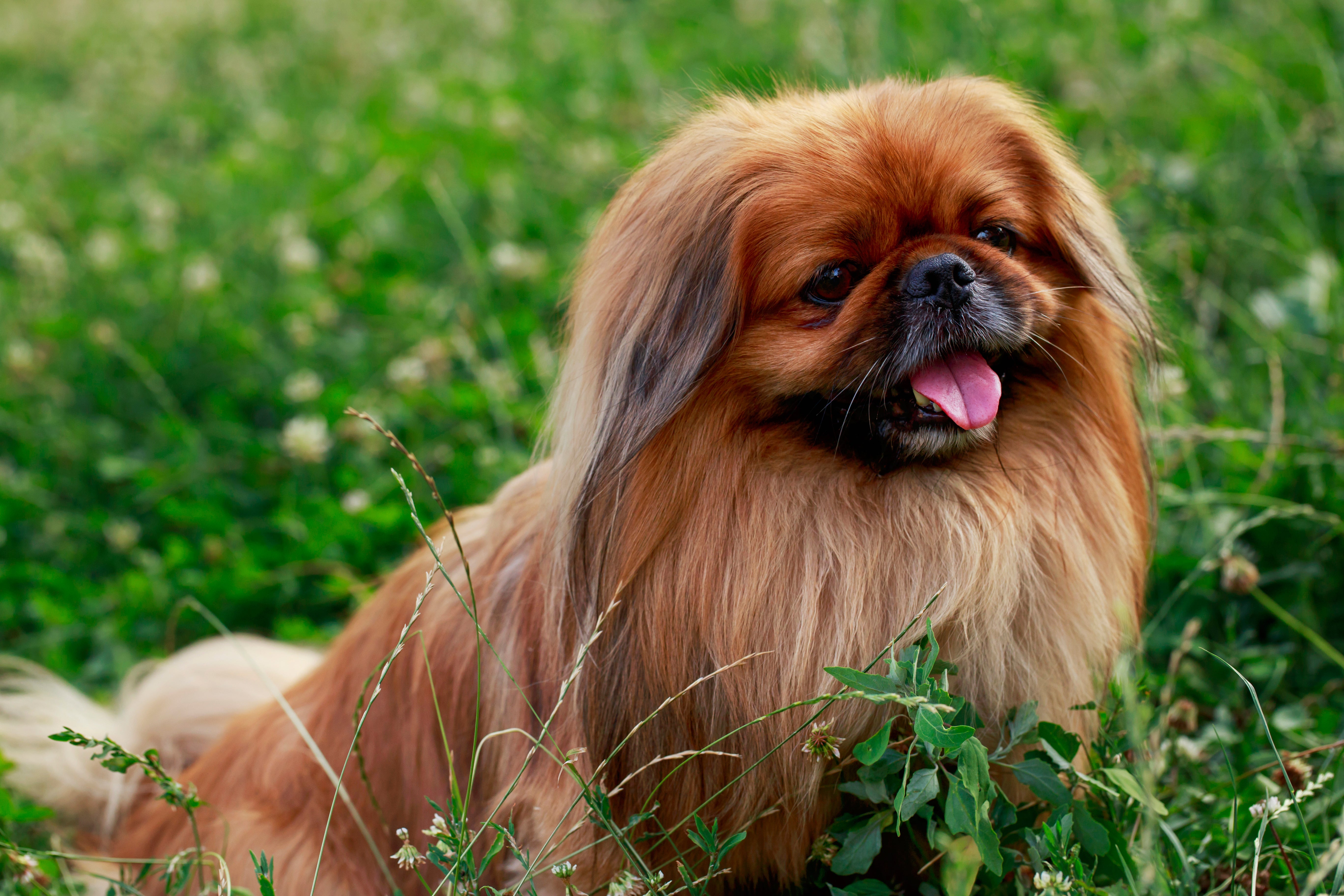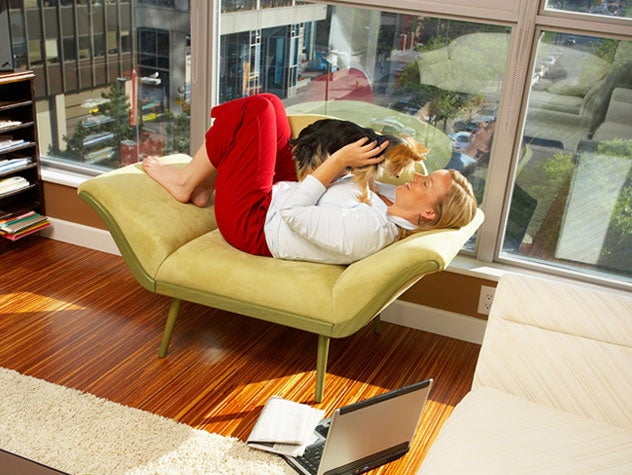Pekingese
Compact and lion-like in appearance, the Pekinese is a striking dog. Its head implies courage and nobility over daintiness and its pear-shaped body walks with a dignified slight roll. A thick undercoat and long, coarse overcoat form a mane around its shoulders. They are bold, confident, and independent while being affectionate with and devoted to their owners.
Breed characteristics carousel
Learn More
The Need-to-Know
- Dog suitable for owners with some experience
- Basic training required
- Potential health risks
- Enjoys gentle walks
- Small dog
- Some drool
- Requires regular grooming
- Quiet dog
- Barks and alerts to visitors/anything unusual
- Generally friendly with other dogs
- Gets along with other pets with training
- May need additional supervision to live with children
- Can live without a yard, happily in the city
- Can be left alone occasionally with training
- AKC Registered Breed

Personality
While they are small pups, they are not timid lap dogs. Courageous and tenacious, these Chinese lion dogs can be outgoing and loving although not overly affectionate. Pekingese dogs are fiercely independent and have a stubborn streak, and some can be aloof. They can be playful around family members but might not be playful enough for children. They don’t like being roughly handled and can be injured easily by small children.
The Lamaist branch of Buddhism is responsible for the Pekingese. The lion was a cherished symbol of Buddha, often appearing in miniature form. These “Foo” dogs resembled lions and were bred to look as lion-like as possible, eventually gaining the moniker “lion dogs.” They were extremely popular during the T’ang Dynasty from 700 A.D. to 1,000 A.D., often treated as royalty. Smaller versions of the dogs got the nickname Sleeve Dogs because they fit in the sleeves of Chinese garments and were carried around in them. In the mid-19th century, the Imperial Summer Palace was looted by the invading British. Five lion dogs were taken back to England and given to Queen Victoria creating a surge in demand. They were popular in the late 20th century but enjoy moderate popularity now.
The coat on the Pekingese breed is heavy and needs frequent grooming, so owners need to be open to sweat equity or high grooming bills. They are steady companions with quirky personalities, and while they don’t demand much attention or exercise, they can be considered high-maintenance.
Their heavy coats and short legs make it hard for them to go on fast or long walks, but it is important that they get exercise in order to keep them trim. A half-hour at a steady pace or off-leash running in a fenced-in yard is ideal. Hot or even warm weather is a no-go for them, so be sure to exercise them early in the morning or late at night. They are so low to the ground that they feel the heat of the pavement more than humans or even other breeds might.
While they are compact dogs that don’t require a lot of space, Pekingese do need owners who are home a lot. A lonely Peke is an unhappy one. They don’t do well with stairs. A Pekingese can get by with daily city walks or a romp around a fenced-in yard, making them adaptable to many living situations.
If an owner opts to keep the full traditional Peke coat, they’ll need to roll up their sleeves and groom the dogs daily to prevent mats or felts, especially around the mane, elbows, ears, and chest. They’ll need to be taught to relax during the grooming process, whether done by you or professionally. Skin and eyes need to be checked daily for debris and tear stains and paw pads should be checked regularly.
Food and toys are handsome rewards for the lion dog, who can respond well to training if the right motivation is used. Smart but uninclined to act unless highly motivated, Pekingese don’t love training for training’s sake but should be taught to walk on a leash without pulling, and good recall, and should be socialized properly.
Homebodies or those who work from home are ideal for Pekingese, who want nothing more than to be near their owners. Small children and Pekingese are not a good match as there might be a fight for attention and loud, chaotic homes can stress the breed out.
The cost of a Pekingese from a breeder is significantly more than the cost of adopting one from a local shelter or rescue. The adoption fee usually covers additional items such as spaying or neutering, vaccines, and microchipping.

Learn more about feeding and caring for your Pekingese on Purina.
Did You Know
- The television series “All Creatures Great and Small” featured a Pekingese.
- In ancient China, the smallest and fiercest Pekingese were kept in the wide sleeves of couriers and Emperors earning the nickname “Sleeve Dogs.”

